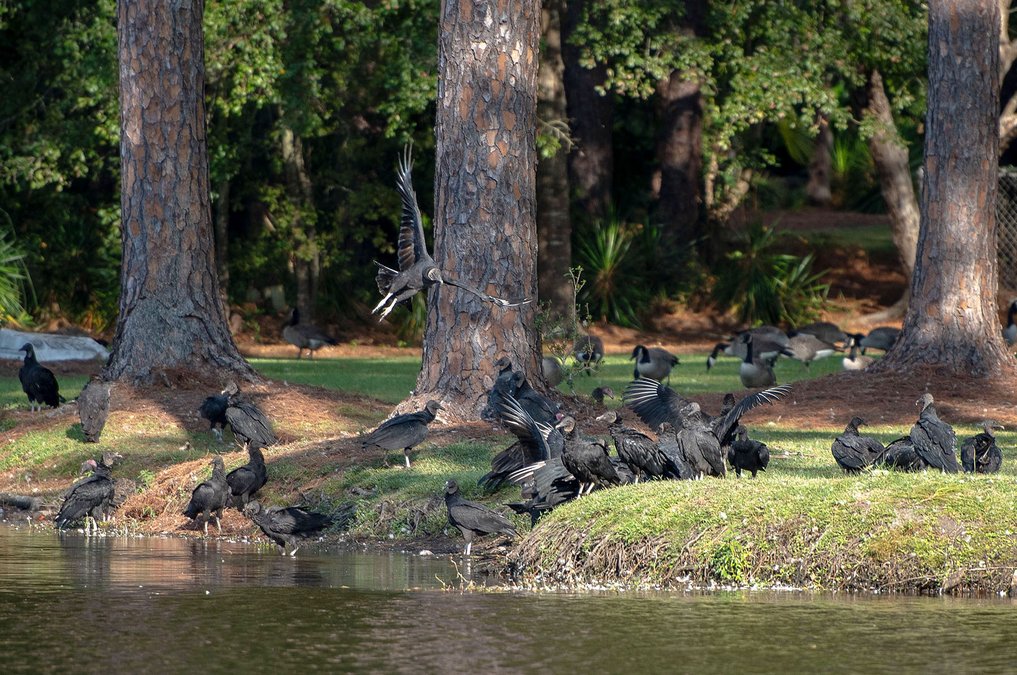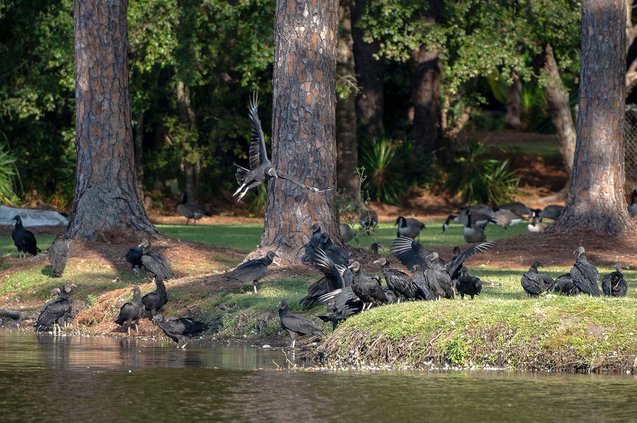Joyce Davis said she was working in the yard of her home in the Northlake subdivision of Statesboro a week ago when she saw something she had never seen before.
“Vultures first started landing on my dock,” she said. “Then they flew into my yard and the tress. Had to be 100 of them. I’ve lived here for 40 years and that never happened. It was shocking.”
But, just as quickly as they appeared, the “committee” of black vultures left Wednesday morning and hadn’t returned as of Thursday afternoon.
Black vultures are common in the southeastern United States. They are large birds with wing spans that can exceed five feet and are scavengers of dead animal carcasses.
For Georgia Department of Natural Resources wildlife biologist Todd Schneider, what happened at Davis’ home is fairly typical behavior for vultures.
“While nobody really knows exactly why vultures roost in certain areas, we know the general conditions,” he said. “Large trees to be in, water's always good, sometimes rooftops, in this case, a dock. And you don't know how long it's going to last. They could be gone tomorrow or they could be there for weeks or months, even.”
Davis’ home and the Northlake subdivision certainly meet Schneider’s description of a place vultures may choose to roost. Though Northlake is only about two miles north of downtown Statesboro, behind Mattie Lively Elementary School, it has relatively few homes with 15-acre Lake Sal at its center and lots of trees.

Davis said for the six days they were at her home, the vultures left every morning and returned every afternoon between 4:30 and 5:30.
Vultures, Schneider said, are social animals, which is why they roost often in large groups, known as a committee.
“For whatever reason, vultures, both turkey vultures and black vultures tend to be very social,” he said. “We have seen more and more groups of black vultures, like the ones in Northlake, congregate in suburban settings similar to that area.”
Schneider said vultures are not aggressive birds and are not a physical threat to humans. However, they can be a nuisance from their droppings and sometimes they will pick at roof shingles or tiles if they roost there, he said.
“Certainly, when hundreds of them show up on some big property, it kind of freaks people out,” Schneider said.
Vultures, like the ubiquitous Canada geese in the Bulloch County area, are a federally protected bird species, which means that homeowners must consult with Georgia DNR or the United States Department of Agriculture before making any attempt to remove the birds, he said.
“I would advise when this happens to know it almost always is a temporary situation,” he said. “So, enjoy them as you can. Watch them – they're pretty funny. Black vultures will fight among themselves, they'll squabble. They got a lot of personality. Black Vultures are like a bunch of kids fighting over stuff.”
But Davis is just happy they’re gone.
“I can’t say I had any use for them,” she said. “I was hoping this storm might make them leave, but they left before. I hope they don’t come back.”



